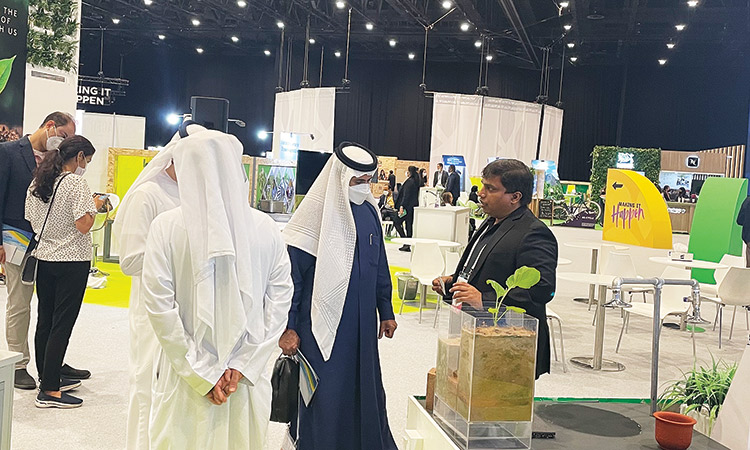
The recently concluded Food for Future Summit, which was hosted by the UAE Ministry of Climate Change and Environment, with the United Nation’s Food and Agriculture Organisation (FAO) as a strategic partner, can be regarded as a great step towards promoting multistakeholder participation for global food security. The summit lived up to its promise and brought key decision-makers, technologies, and ideas under one roof.
Agriculture has enabled civilizations and continues to drive economic prosperity throughout the world. In the UAE, however, the dearth of arable land and freshwater resources, along with scorching weather conditions all year round, has hindered agricultural productivity. Despite all this, the country has taken concrete efforts to develop sustainable farming systems and is working vigorously to achieve local agriculture-driven food security.
Meanwhile, food and water security have further become the UAE’s key priorities in the post-pandemic era, with the country launching multiple initiatives to address systemic issues and achieve optimal agricultural yield. For a nation that imports 80-90% of its food(1), the fragility of the supply chain and the entire system came to stark focus at the peak of the COVID-19 pandemic when the imports were unexpectedly disrupted.
As a result, in recent months, the country has empowered researchers, entrepreneurs, and startups while also creating a conducive ecosystem for environmentally responsible AgriTech. The futuristic Food Tech Valley, launched last year in Dubai, aims to triple UAE’s food production and is one of the several key initiatives that testify to the nation’s commitment and resolve. These efforts are being supported by local sustainability advocates who are innovating and developing cutting-edge technologies, with water conservation, emission reduction, and ecological improvement as the focus.
Among them is Dake Rechsand, whose “magic” Breathable Sand — a low-cost, water-retentive, and air-permeable medium made from typical desert sand — has shown considerable promise in enabling high yield in desert conditions. In agricultural application, the water-retentive medium reduces irrigation requirements by 80% compared to conventional techniques while enabling high yield due to its air permeability. As a result, Breathable Sand has found application in desert farming, a proposition that is key to UAE’s food security aspirations.
“Be it climate actions, or food security, or sustainability, the current situation is such that there is a pressing need to walk the talk; not just talk the talk. The world is nearing a tipping point on climate change, and food and water are becoming scarcer by the day. This scenario is more pronounced in the Middle East, which has — what I like to call — pre-existing conditions that make countermeasures a tall order. Dake Rechsand is striving to address such conditions and simplify food security and sustainability pursuits,” said Chandra Dake, Founder of Dake Rechsand.
Soil quality that is suitable for growing conventional crops is limited to a total of 13-15% in the UAE. But innovation in the area can improve the quality and health of the soil and make it more suitable for agriculture. Rationalizing why low-input desert farming can work wonders for food security, Chandra Dake said, “The UAE is 80% desert, with expansive barren lands, where productivity is low and conventional agriculture is not feasible. With Breathable Sand’s ability to retain water, preserve fertilizers, and produce a high yield in desert conditions, we can make barren lands arable. This also has implications for ecological improvement and emission reduction, as nations across the region have a high dependence on carbon-intensive desalination plants. The best part is that Dake Rechsand is already doing it. So, now it’s just a matter of scale.”
Additionally, in what can be considered as an archetype of multistakeholder participation, the Emirates Nature-WWF, the UAE Ministry of Climate Change and Environment, the FAO, and the UAE Ministry of Health and Prevention launched a joint campaign called the “Food for Life”. The campaign seeks to raise awareness about how sustainability is tied to a healthy diet, through outreach programmes and events. Another notable development was the launch of “FoodWise Challenge”, a campaign by Goumbook, a leading social enterprise in the region.
The campaign aims to instil sustainability and healthy food choices at schools and universities. These efforts also reflect the UAE’s capability as a launchpad for impactful technologies and campaigns. Also, as far as multistakeholder participation is concerned, the UAE has an intrinsic edge over other nations due to its strategic location between East and West, its multicultural demographics, and a technological bedrock.
Inayat-ur-Rahman, Business Editor












